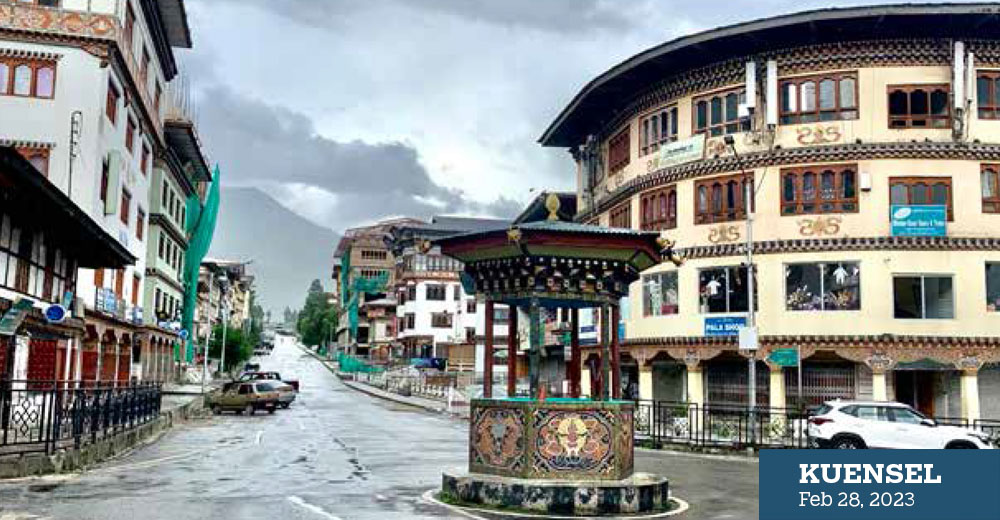…no SDF exemption
Thukten Zangpo
The government is discussing resolving the budget hotel issue by categorising the hotels into three categories.
Prime Minister Dr Lotay Tshering shared this with the private sector on February 24.
Lyonchhen said that the government is looking at budget hotels in three categories—budget hotels that can be upgraded, hotels that can be converted to offices, apartments, and bachelor quarters. If budget hoteliers want to sell their hotels, the government will buy them at a good rate.
With the opening of tourism in the country in September last year, the budget hotels could not cater services to the tourists because as per the recent tourism policy, all tourists visiting the country should stay in 3-star or above-rated hotels.
After this, the budget hotels appealed to the government to allow regional tourists in the budget hotels.
A business representative said that since most of the budget hotels are closed, there is a risk of damaging the infrastructure if it is kept closed for a longer duration and owners are not able to pay equated monthly installments to the banks.
Agreeing that budget hotels were affected by the recent tourism policy, Lyonchhen said that budget hotels do not have a future.
New budget hotels and standard ones can be upgraded, he added.
“We could set a criterion and then budget hotels should meet this requirement rather than studying the budget hotels and lowering the target,” Lyonchhen said.
On the sustainable development fee (SDF) of USD 200 per person per night for international tourists, the chairman of Yarkay Group, Aum Phub Zam, said that if the government could impose SDF of USD 600 for three nights and exemption for the next three nights, it would create opportunity for more tourists to come.
She added that figures of tourists visiting the country are not the true picture since it also includes those tourists coming for projects-related work.
Lyonchhen said that the government is reviewing the tourism policy and it is too early to comment as to whether the policy is good or bad for Bhutan.
He said that the government would not exempt the SDF but it would be reviewed after two years of implementation.
“If we exempt SDF according to the number of tourists and duration of stay, it does not stand for the high-end destination,” Lyonchhen said. “There will be no reduction in SDF or subsidy to encourage more tourist arrivals.”
However, he added that the review would be carried out on the tourists visiting as government guests and those coming for the investments and conferences.
Lyonchhen also agreed that infrastructure and services are not as good as they actually should have been.
The proprietor of RSA Private Limited, Singye Namgyel Dorji, said that the tourism policy was an ambitious programme but was introduced without adequate consultation and without enough investment.
“We are not a high-value market in terms of the facilities we offer. In fact, it has become worse,” he added. “We have taken a good policy and implemented it badly.”
Singye Namgyel Dorji that the hoteliers are unhappy because the number of tourists has come down and the communication facilities are still lacking.
When asked about revising INR 1,200 for regional tourists, Lyonchhen said that the government has no plans to increase it but would review it in two years.
“Exemption of SDF would be a loose end, and that will undo the whole process,” Lyonchhen said, adding that although the policy is impacting adversely currently but could be beneficial for the country in the long-run.
There are more than 630 budget hotels in the country, of which most are on lease.


